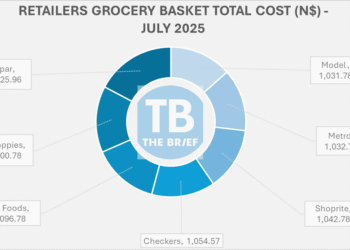
Naspers lost more than R100 billion in value on Monday after a report in the Wall Street Journal triggered a large sell-off in the Chinese tech giant Tencent.
Naspers subsidiary Prosus owns 29% of Tencent.Â
After falling more than 15% at one point, Naspers ended Monday down 13% at R1 557.89. Prosus dropped 11% at R765.18.
Tencent slumped 10% in Hong Kong to its lowest level in two years on Monday after the Wall Street Journal reported that it will have to pay a record fine for allegedly violating Chinese anti-money laundering regulations.
According to the report, which cited unidentified sources, Chinese authorities found Tencent’s WeChat Pay had allowed the transfer of funds for banned purposes like gambling.
WeChat Pay also allegedly transgressed other rules related to identifying users on the platform.Â
Chinese technology shares like Tencent also came under pressure on Monday after the government launched a lockdown in parts of China, including the technology centre Shenzhen, to curb the spread of Covid-19.
Russia’s invasion of Ukraine has hit Naspers and Prosus, which owns large businesses in the region.
Last week, Prosus announced that it will be writing down the full $700 million (roughly R10 billion) value of its 25.7% stake in Russia’s biggest internet company, the VK Group.
Prosus also owns Russian classified ads business Avito, and its OLX Europe business employs 350 people in Ukraine.
“The news of money laundering claims and other regulatory infringements faced against Tencent has quite rattled the market. The impact of the ongoing war is only secondary to the latest revelations,” said Wayne McCurrie, portfolio manager at FNB Wealth and Investments.
Wilhelm Hertzog, portfolio manager at Rozendal Partners, said he was surprised that Naspers took a lot more heat from the news than Tencent, whose decline was smaller.
He also pointed out that Naspers share price does not increase at the same pace as Tencent stock after a dip.
“There has been an asymmetry there,” said Hertzog.
Naspers and Prosus have been under pressure from investors to do something about the fact that they are trading at a discount to their stake in Tencent. Hertzog added his voice to those who want the groups to unbundle the stake in Tencent and others to shareholders.-fin24











